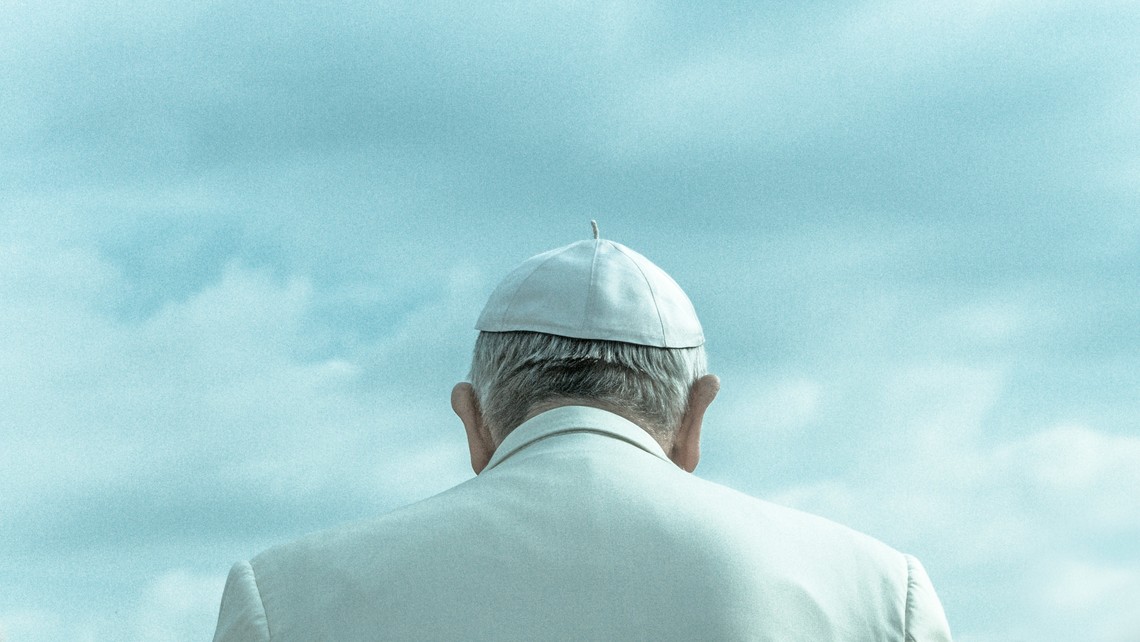
As the world now knows about the death of Pope Francis on the first Monday of the Octave of Easter, it is important to address both the human condition and the Divine condition that both defined Pope Francis and surrounded him at the same time. As the Holy Father, Pope Francis sought the spiritually marginalized, the down-trodden, the lost, the ignored in the peripheries which defined much of his Pontificate. Mercy served as a foundational theme aimed at seeking the good will of the person and embracing him regardless of his personal state in life, both civil and moral. His actions, whether embraced, or rejected, criticized, or applauded always reflected on seeking Christ in the person in front of him.
At times, it appears that his compassion for the oppressed and marginalized however these categories can be defined was done at the expense of the doctrinal identity of the Church rooted in sacred Tradition, and sacred Scripture, e.g., Amoris Laetitia, Synodal processes, Theology of the Body, or the Catechism of the Catholic Church itself. These elements of doctrinal ambiguity would at best cause one to ask, why propose any form of creedal confusion? At the same time, the Holy Father was acutely aware of the battle between good and evil, the presence of evil in the world and the need to be spiritual vigilant of the forces of evil in the world and the threat to the domestic family.
In his Apostolic Exhortation, Evangelii Guadium, the Holy Father initiated a path to evangelization that focused on the need to have our own spiritual doors open to everyone as he describes the Church as a mother with an open heart[1]. This description of the Church echoed St. John Paul II’s central to “open wide the doors to Christ” and seek the marginalized and the lost. If there was a specific section of his exhortation that exemplifies how he wanted to evangelize it is the following,
Let us go forth, then, let us go forth to offer everyone the life of Jesus Christ. Here I repeat for the entire Church what I have often said to the priests and laity of Buenos Aires: I prefer a Church which is bruised, hurting and dirty because it has been out on the streets, rather than a Church which is unhealthy from being confined and from clinging to its own security. I do not want a Church concerned with being at the centre and which then ends by being caught up in a web of obsessions and procedures. If something should rightly disturb us and trouble our consciences, it is the fact that so many of our brothers and sisters are living without the strength, light and consolation born of friendship with Jesus Christ, without a community of faith to support them, without meaning and a goal in life. More than by fear of going astray, my hope is that we will be moved by the fear of remaining shut up within structures which give us a false sense of security, within rules which make us harsh judges, within habits which make us feel safe, while at our door people are starving and Jesus does not tire of saying to us: “Give them something to eat” (Mk 6:37).[2]
Francis’ view of the Gospel aligned squarely with the reality of the Resurrection; both exemplified the need for holiness through the virtue of Hope in Jesus Christ. It was Jesus who accomplished something quite astonishing at his Resurrection; sin can no longer have a permanent hold on us, and death is no longer associated with evil but is directed toward eternal life. In his first letter to the Corinthians, St. Paul reiterates the events of the Resurrection and, makes us aware that,
Christ has been raised from the dead, the first fruits of those who have fallen asleep. For as by a man came death, by a man has come the resurrection of the dead. For as in Adam all die, so also in Christ shall all be made alive. But each in his own order; Christ the first fruits, then at his coming those who belong to Christ. Then comes the end, when he delivers the kingdom to God the Father after destroying every ruler and every authority and power.[3]
Understanding the actions of Christ on the Cross and the nature of the Resurrection echoes the Holy Father’s insistence that we constantly pray. In Guadete Et Exsultate, he provides us with five spiritual attitudes, perseverance, patience, meekness, joy, and a sense of humor as a means of strengthening our relationship with Christ, and becoming effective evangelists.[4] The theme of these five spiritual attitudes focuses on the importance of not judging the person but instead exercising great humility in the name of Christ.
There much that can be said of the Pontificate of Pope Francis, both justifiably positive and negative, however, with his passing, it is important that we place ourselves as prayerful witnesses for the commendation of the death of Pope Francis. The Resurrection serves as the catalyst of what awaits us in our desire to seek Christ and nothing else on this earth. It is in the Resurrection that our own human existence makes sense because it was bought with the price of the death of Jesus Christ. May our prayers for Pope Francis reflect a sense of humility and hope as he enters into the next stage of his journey with our Lord.






